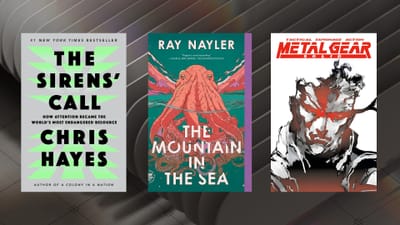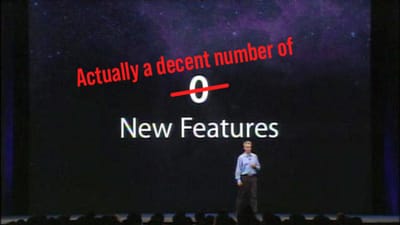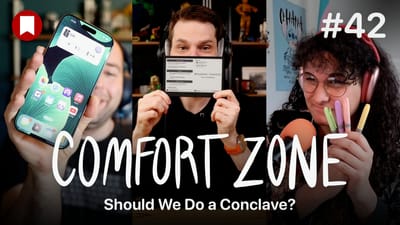The Historical Context of the Word "Podcast"
The history of the word "podcast" has come up a lot in response to my "career suicide" article yesterday, with people saying that the fact that podcasts are distributed over an open RSS feed being a funamental element of what makes a podcast a podcast. Memory is a fickle thing, so I did some digging for how people desribed podcasts in the early days of the medium. Here's a few examples.
The Guardian in 2004, the first reference to the word "podcast" I can find
With the benefit of hindsight, it all seems quite obvious. MP3 players, like Apple's iPod, in many pockets, audio production software cheap or free, and weblogging an established part of the internet; all the ingredients are there for a new boom in amateur radio.
But what to call it? Audioblogging? Podcasting? GuerillaMedia?
"It's an experiment, really," says Christopher Lydon, the ex-New York Times and National Public Radio journalist, and now a pioneer in the field. "Everything is inexpensive. The tools are available. Everyone has been saying anyone can be a publisher, anyone can be a broadcaster," he says, "Let's see if that works."
Lydon's programmes, downloadable from his weblog, are interviews with webloggers, internet pioneers, and more recently, politicians, as the American presidential election campaigns gain speed.
Podcasting takes its name from Apple's popular iPod line of products, but it isn't limited only to iPod owners and listeners. What distinguishes a podcast from other types of audio products on the internet is that a podcaster can solicit subscriptions from listeners, so that when new podcasts are released, they can automatically be delivered, or fed, to a subscriber's computer or mobile device.
Podcasting, a portmanteau of Apple's "iPod" and "broadcasting", is a method of publishing files to the Internet, allowing users to subscribe to a feed and receive new files automatically by subscription, usually at no cost. It first became popular in late 2004, used largely for audio files.
The University of Minnesota in 2006
- A podcast is a media file (such as audio or video files) that is downloadable from the Internet. These can then be played back on a computer or be copied to and played by portable audio/video player (e.g. iPod). Video podcasts are also known as "vodcasts."
- A key feature that distinguishes a podcast from other media files that can be downloaded or streamed is the ability for end users to download the podcast automatically using software that reads RSS or Atom feeds.
- The term "podcast" is both a noun and a verb. As a noun it refers to the file that is downloaded or streamed; as a verb it refers to the process or method of delivering the file.
The word “podcasting” is a portmanteau combining the words “broadcasting” and “iPod.” In case you have had your head in the sand recently or don’t keep up with popular technology an iPod is a portable music player produced by Apple Computers. Apple was lucky/smart enough that their brand was wrapped into a term for a new technology much like the Sony Walkman becoming the popular name for a portable radio/cassette player or inline skates being called “rollerblades”, which is brand name for a company that produced inline skates.
What is podcasting? In the 2006 State of the News Media, an annual report on American journalism, we provided the following definition:
“Podcasting is a way to distribute audio and video programming over the Web that differs from earlier online audio and video publishing because the material is automatically transferred to the user’s computer and can be consumed at any time, usually on an Apple iPod or another kind of portable digital music player commonly known as an MP3 player.”
This is not a comprehensive list, but it's the relevant hits from the first page of a Google search for "what is a podcast" with a date range of 2005-2006. RSS is brought up (most explicitly by the University of Minnesota page), but these overviews tend to focus more on the type of content and the ability to subscribe to new shows that are automatically delivered to you than on the "open nature of RSS".
The conversation yesterday's article spurred has been really interesting, and thankfully, very reasonable. Like I said then, I don't know if my current argument is the end-all-be-all argument on the matter, but I wanted to explore this idea of getting outside our bubble and consider if we're trying to set something in stone that has been fluid forever.
I'm not suggesting anyone is definitely right or wrong yet, I'm just exploring the idea in public.
Two final things before I go…
One, using the technical distribution and access as what defines a podcast is a really messy way to do this, in my opinion. Is a show that is paid, like Ben Thompson's shows, a podcast? It's an open RSS feed, so sure. What about podcasts that require username/password to access it? Mosts apps don't support this, so is this still a podcast if you need to use specific apps to access it? What if I have an RSS feed, but I request all apps besides Overcast to block users from subscribing? Ok, that last one doesn't really happen, but I'm trying to find the line, which I think is not as black and white as you might want to think.
Two, I raised this question with my wife yesterday and you should have seen the eye roll she gave me when I asked if she thought exclusive shows on Stitcher and Spotify were podcasts. "People actually think they're not???" She was not impressed with my explanation about open RSS feeds.


